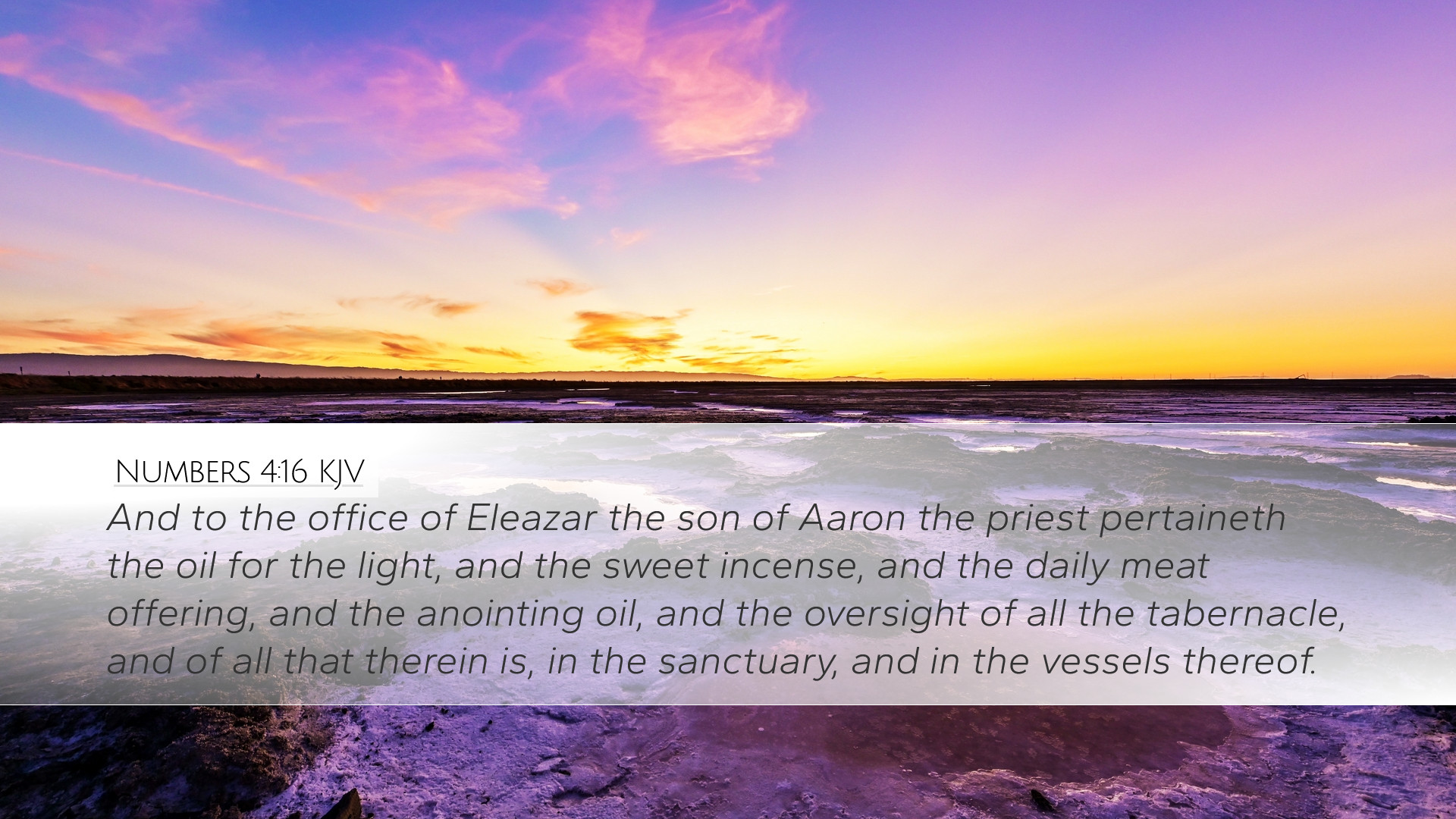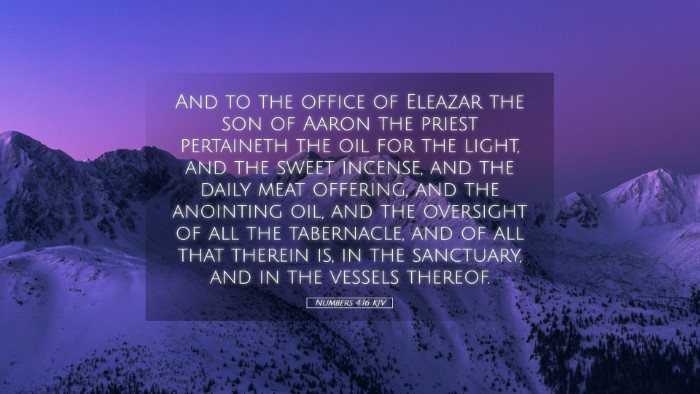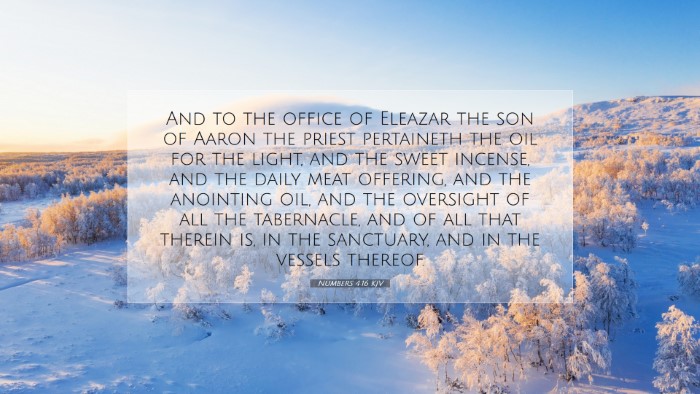Commentary on Numbers 4:16
Introduction
Numbers 4:16 states:
"And to the office of Eleazar the son of Aaron the priest pertaineth the oil for the light, and the sweet incense, and the daily meat offering, and the anointing oil: the oversight of all the tabernacle, and of all that therein is, in the sanctuary, and in the vessels thereof."
This verse articulates the responsibilities assigned to Eleazar, which are pivotal for understanding the structure and function of priestly duties in the Hebraic tradition. The comments from various public domain commentators will explore the depth of these responsibilities, the significance of the priesthood, and the implications for worship and community.
Responsibilities of Eleazar
Matthew Henry's Commentary
Henry emphasizes the importance of the priestly office in maintaining the sanctity of worship. He notes that Eleazar's role encompassed the oversight of essential elements that contributed to the tabernacle's spiritual life. The oil for the light symbolizes the illumination of God's presence and guidance through the Holy Spirit. The responsibilities are not merely ceremonial; they reflect a profound relationship between God and His people.
Albert Barnes' Notes
Barnes focuses on the items mentioned in the verse, interpreting each as representing crucial aspects of covenant worship. The "oil for the light" signifies spiritual enlightenment and the continuous presence of God, while "the sweet incense" represents prayer and divine communication. Barnes highlights that these elements are more than symbolic; they are deeply ingrained in the worship life of Israel, essential for maintaining a holy relationship with God.
Adam Clarke's Commentary
Clarke points out that the 'daily meat offering' and the 'anointing oil' signify sustenance and consecration. He emphasizes that Eleazar's oversight concerns not only the physical aspects of worship but the spiritual well-being of the Israelite community. The anointing oil, in particular, holds a dual significance: it represents both the empowerment of the priests and the setting apart of the people for God's service.
The Role of the Priesthood
The responsibilities outlined for Eleazar point to the broader themes of priesthood in the Old Testament. Each commentator aligns with the understanding that the priesthood serves not merely as ritualistic functionaries but as mediators between God and the people.
- Matthew Henry: Henry notes that priests served as spiritual leaders, guiding the nation in holiness and obedience to God's laws.
- Albert Barnes: Barnes argues that the role of the priest is fundamentally about teaching the people to observe the laws of God and to maintain a righteous path.
- Adam Clarke: Clarke discusses the idea of the priest as a symbol of Christ, showcasing how Eleazar foreshadows the ultimate High Priest who fulfills the sacrificial system and mediates for humanity.
The Theological Implications
Numbers 4:16 resonates with deeper theological implications rooted in the nature of worship and the characteristics of God.
- God's Holiness: Each element linked to Eleazar highlights God's holiness and the need for purity in worship. The oil and incense used in worship were essential reminders of God's separateness and the devotion required from His people.
- Divine Provision: The offerings and provisions signify that God nourishes both spiritually and materially, urging dependability upon God for sustenance in all aspects of life.
- Community Responsibility: The assignment of duties to Eleazar illustrates the communal aspect of faith; while individual priests have roles, they serve the larger body of Israel, reinforcing the idea of collective worship and responsibility.
Application for Today's Believers
This verse profoundly speaks to modern believers and church leaders, associating the responsibilities of the priesthood with contemporary church duties.
- Spiritual Leadership: Church leaders are called to guide their congregations with wisdom, ensuring that worship remains centered on God and His truth.
- Continual Worship: Like the offerings described, believers are encouraged to bring continual offerings of praise, prayers, and acts of service before God.
- Holiness in Worship: Current believers must recognize the importance of approaching God with a heart purified and set apart for His use.
Conclusion
Numbers 4:16 serves as a pivotal verse highlighting the sacred responsibilities of the priesthood, portrayed through the duties of Eleazar. The rich insights from Matthew Henry, Albert Barnes, and Adam Clarke help illuminate the significance of divine worship and community life under God's covenant. For pastors, theologians, and scholars, this verse is a reminder of the seriousness of leading in worship and the integral role each believer plays in the body of Christ today.


